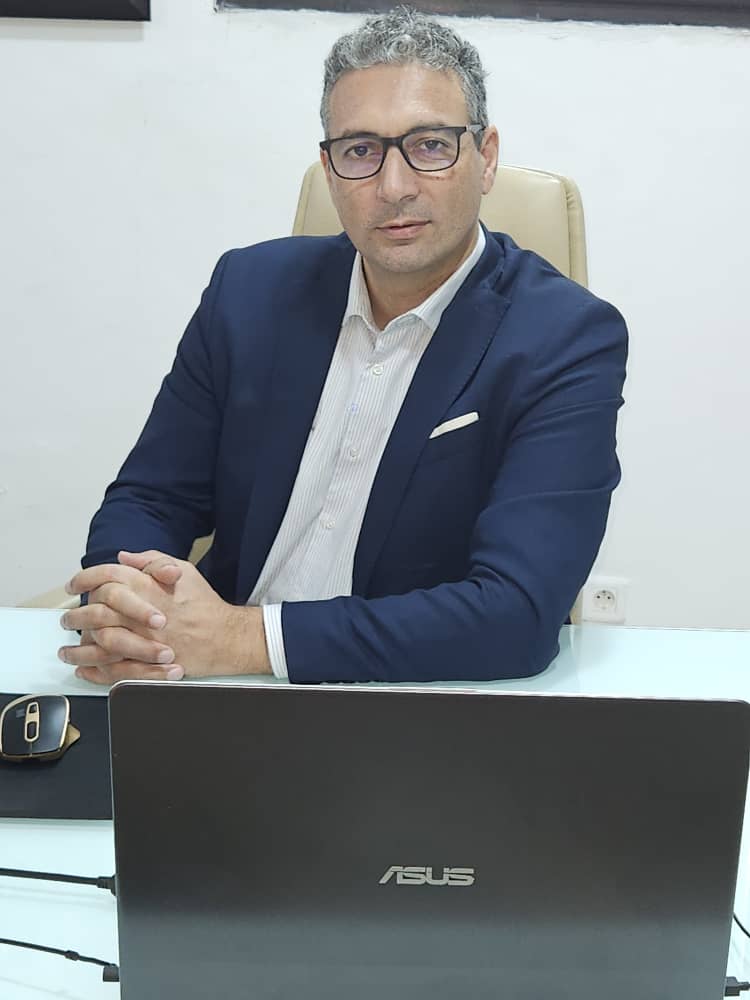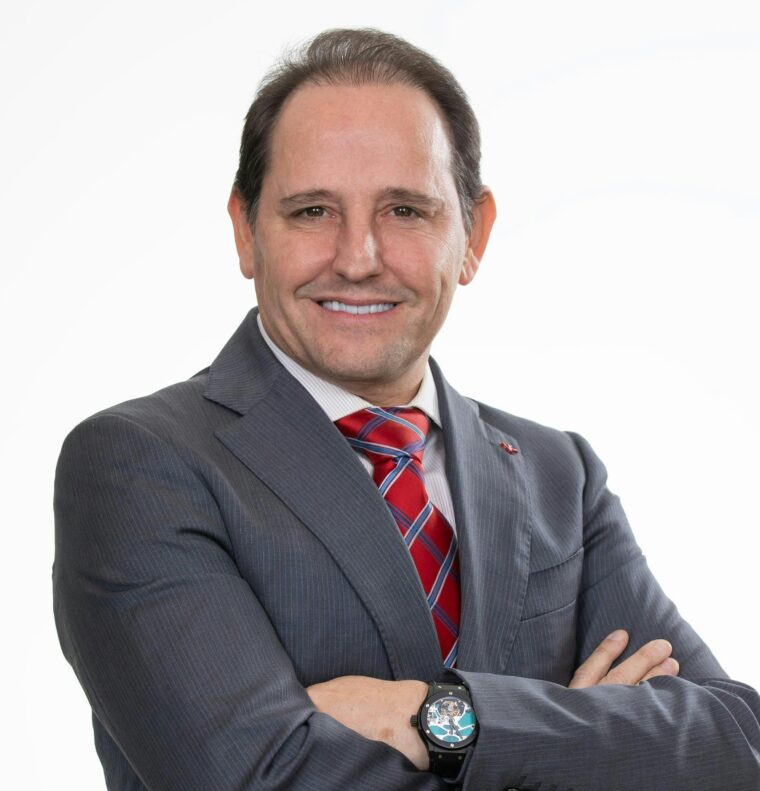Portuguese people who stand out abroad are helping to find out where business opportunities are and what kind of companies and activities the country can attract. An initiative that brings together Negócios and the Portuguese Diaspora Council.
1- What led you to leave Portugal?
The decision to leave Portugal in 1999, after completing my degree in Economics, was driven by a clear vision of the international business landscape. I realized that to have a distinguished career in economics, finance, and development, I would need strong international exposure. London came as a natural choice, not just because of the English language, but mainly because it is one of the main global financial centers.
This decision was structured in two phases: first, immersion in the Anglo-Saxon environment to develop language and professional skills (1999-2002) and then, through the INOV Contacto program, which opened the door to the European Development Bank, marking the start of my career in multilateral financing institutions (2002-2014). This progression proved fundamental to building a solid international career.
2- What advantages or disadvantages did being Portuguese bring you?
Being Portuguese proved to be a significant advantage in the international context, mainly due to our natural ability to adapt and ease in establishing cultural bridges. Mastery of four languages (Portuguese, English, French and Spanish) was crucial; but more than that, the Portuguese cultural background, which allows us to navigate easily between diverse cultural contexts, proved to be an important differentiator.
In addition, our historical heritage as navigators still resonates in the international business world – the Portuguese are seen as adaptable, resilient professionals with a unique ability to build relationships in diverse cultures.
3- What obstacles did you have to overcome and how did you do it?
My career path presented two significant challenges. The first was the initial adaptation to a highly competitive international environment, especially in London, where the level of demand and the pace of work were substantially different from what I was used to in Portugal.
The second, and more challenging, was the transition from a stable career as an employee of multilateral organizations to an entrepreneur in West Africa. This change required not only a transformation in mentality – from employee to entrepreneur – but also a profound adaptation to the African business context. New skills had to be developed in risk management, negotiation in different cultural contexts and building local relationships.
Overcoming these obstacles involved a continuous process of learning, resilience, and adaptation.
4- What do you admire most about the country you are in?
In Côte d’Ivoire, I particularly admire the country’s remarkable capacity for post-conflict recovery and growth. The country emerged from a civil war (2002-2010) to become one of the most dynamic economies in West Africa, maintaining an average growth rate of 7.5 per cent a year since 2013.
Particularly impressive is the balance achieved between the different religious and ethnic groups, with a population divided equally between Christians and Muslims, while maintaining a functioning secular state. This model of peaceful coexistence and focus on economic development offers valuable lessons for other nations.
5- What do you admire most about the company or organization you work for?
As the founder of a business group, what I admire most is the organic evolution of our companies and their ability to adapt to the local market. Particularly noteworthy is the current process of professionalizing management – a crucial phase we are going through.
This process of transition from entrepreneurial to professional management has been a fascinating learning journey, especially for me. It shows how organizations, like people, need to evolve and transform in order to grow sustainably. This is an aspect of entrepreneurship that should be given more attention in academic and business training programs.
6- What recommendations would you give to Portugal and its entrepreneurs and managers?
Based on my international experience, I would recommend three fundamental points:
Firstly, the importance of seeing companies as living organisms in constant evolution. Sustainable success requires a mindset of continuous adaptation and permanent innovation.
Secondly, the need to look at emerging markets, especially in Africa, with a long-term perspective. The opportunities are immense, but they require patience, a deep understanding of the local context and the ability to adapt.
Thirdly, the importance of developing international skills early on in your career. The business world is increasingly global, and the ability to operate in different cultural contexts is fundamental.
7- In which sectors of the country where you live could Portuguese companies find clients?
In addition to Côte d’Ivoire, our Group operates in the West African region. The opportunities are immense, as are the risks.
In West Africa, and particularly in Côte d’Ivoire, there are significant opportunities in various sectors. The agro-industrial sector has immense potential, especially in the processing of cocoa, coffee, and cashew nuts, where Portuguese companies can contribute technological know-how and processing expertise. The construction and infrastructure sectors are booming, with major urban and port development projects. Renewable energies, mainly solar and biomass, represent another promising sector, given the government’s policy of diversifying the energy matrix. In the services sector, there are opportunities in banking digitalization and financial services, areas where Portugal has proven experience.
8- In which sectors in Portugal might companies from the country where you live want to invest?
Ivorian companies have shown a growing interest in various sectors in Portugal. Tourism and hospitality are particularly attractive areas, given Portugal’s international recognition in this sector. The Portuguese property sector is also attracting interest, especially for medium and long-term investments. The Portuguese agri-food industry, with its strong innovation and quality component, represents an opportunity for partnerships. The Portuguese technology sector, especially in Lisbon and Porto, is attracting attention for its dynamic innovation and start-ups. In addition, the Portuguese wine sector offers interesting opportunities for import and distribution in the African market.
9- What is the competitive advantage of the country you live in that could be replicated in Portugal?
Côte d’Ivoire’s main competitive advantage that could inspire Portugal is its ability to attract foreign investment through pragmatic and efficient economic policies. The country has implemented a one-stop-shop system for company creation that significantly reduces bureaucracy. In addition, the way the country has developed special economic zones, with clear tax incentives and a dedicated structure, could be an interesting model for Portugal to energize less developed regions. Another notable aspect is the agro-industrial development policy, which has managed to create complete value chains in various products, something that Portugal could replicate in strategic sectors.
10- Are you thinking of returning to Portugal? Why do you think so?
Yes, Portugal is part of my medium-term life plan. Despite my international career, I maintain a strong connection with the country, which offers an exceptional quality of life that is increasingly recognized globally.
International experience has allowed me to recognize Portugal’s competitive advantages: excellent infrastructure, safety, health, education, and a unique work-life balance. The country is also emerging as a hub for innovation and entrepreneurship, creating interesting opportunities for professionals with international experience.
As a native of Trás-os-Montes, returning represents not only a return to my roots, but also the opportunity to contribute to the country’s economic development. Portugal’s geographical position and its historical relations with Africa, America and Asia, combined with my experience and network of contacts, can create a unique platform for entrepreneurial projects with a global reach, especially in building bridges with Africa and the Middle East.







